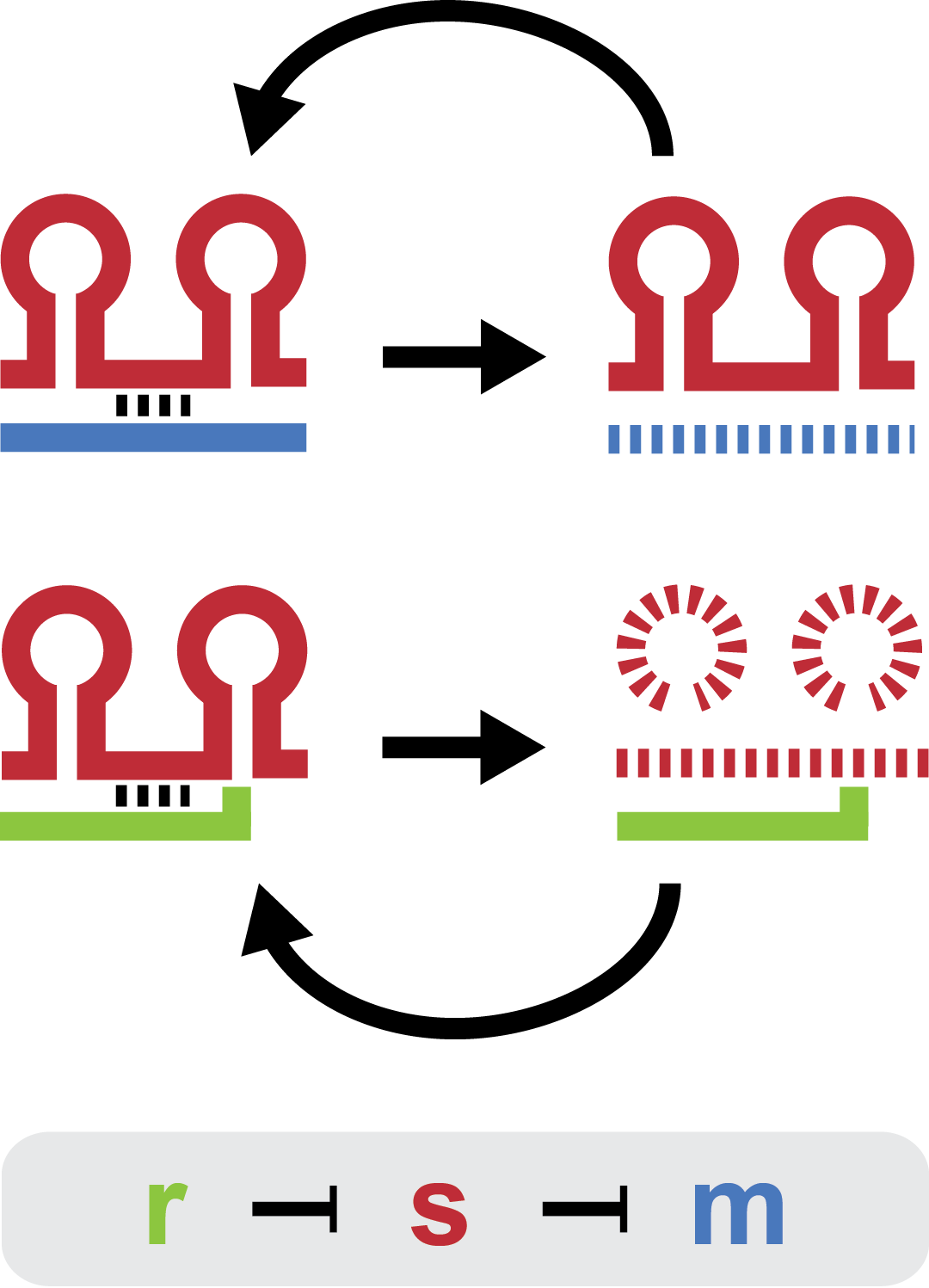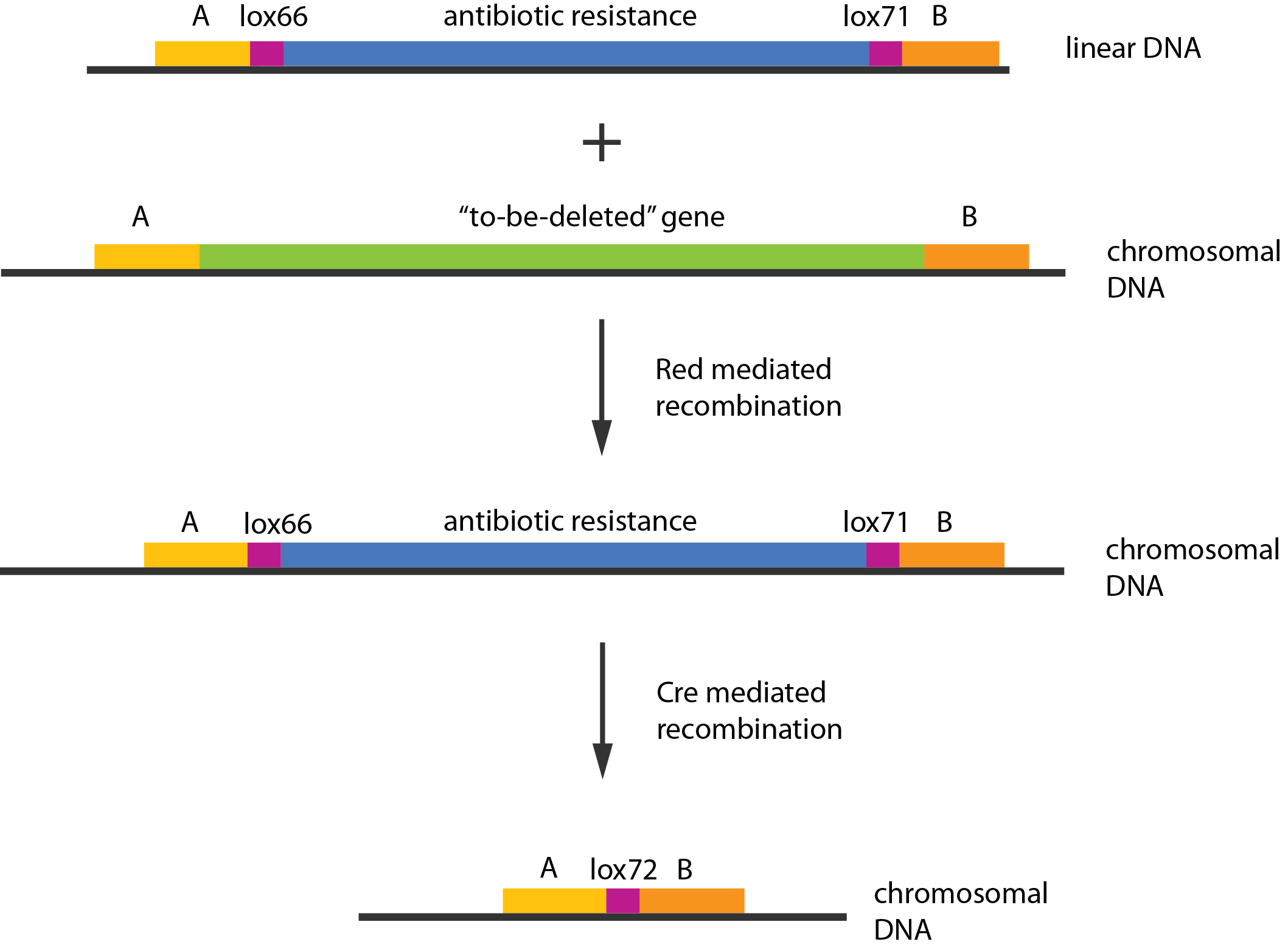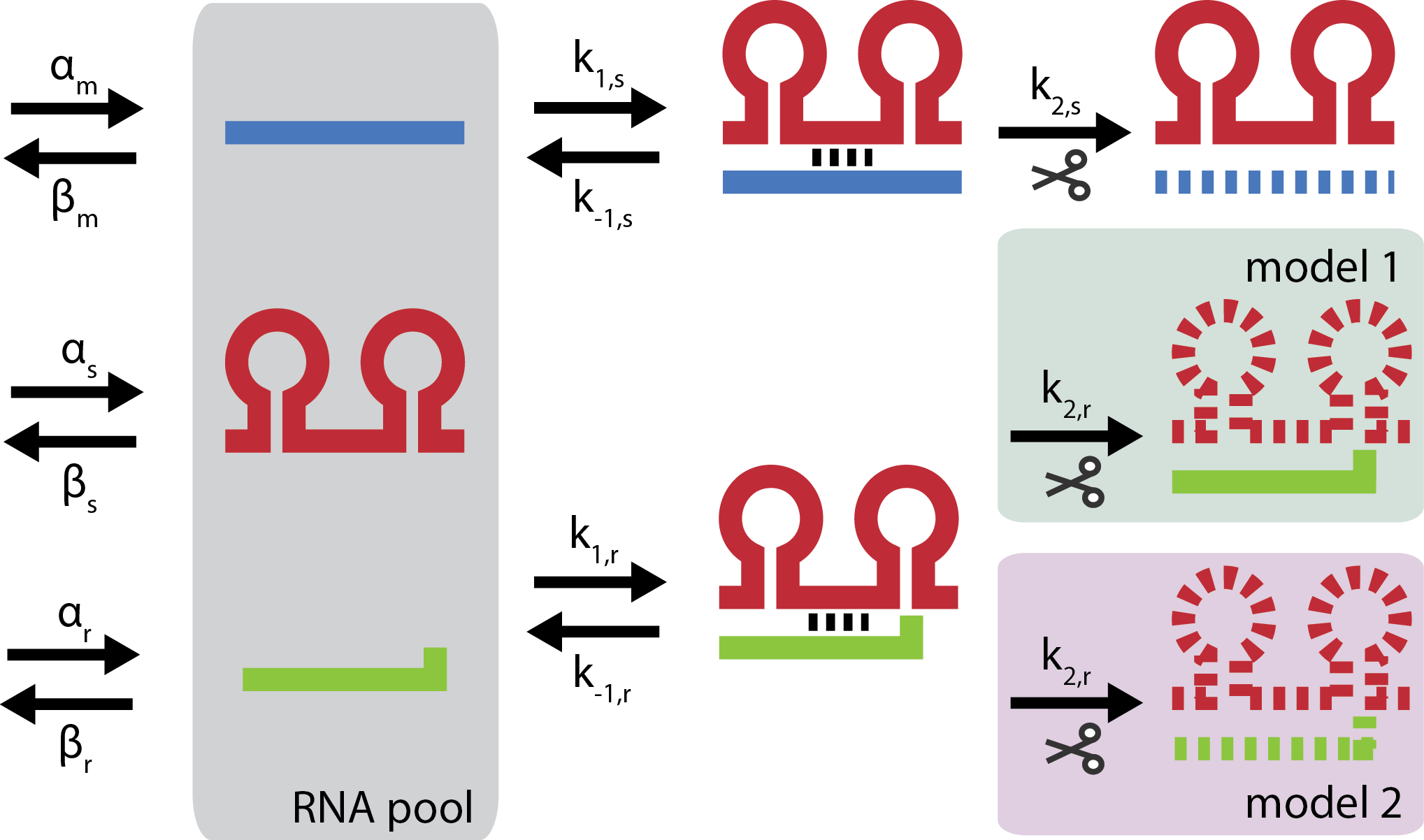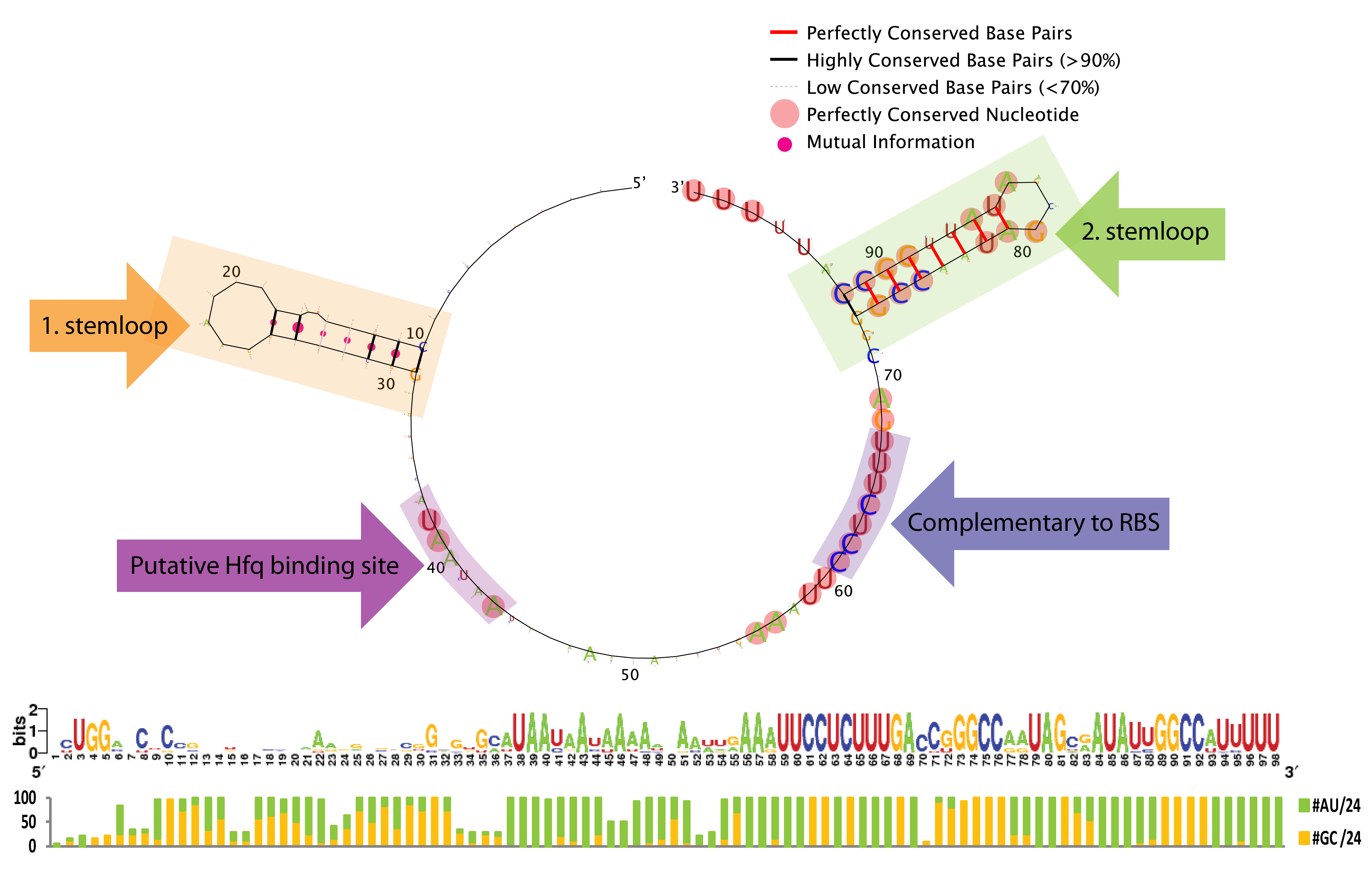Team:DTU-Denmark/Project
From 2011.igem.org
Project: Overview
Contents |
Abstract
Small regulatory RNA is an active area of research with untapped possibilities for application in biotechnology. Such applications include convenient gene silencing and fine-tuning of gene expression, which are currently cumbersome processes restricted to well studied bacteria. We have investigated a novel type of RNA regulation, where the inhibition caused by a small regulatory RNA is relieved by another RNA called trap-RNA. We explore the possibility of using the system to uniquely target and repress any gene of interest providing unprecedented specificity and control of gene silencing.
OR
Small regulatory RNA is an active area of research with untapped possibilities for application in biotechnology. A novel type of small RNA regulation displaying favorable properties was investigated ...
Experiments
Verifying that the envisioned small RNA based gene silencing is possible. Plasmids containing and strains deleted for the components were constructed providing a biological model. The dynamic range of the araBAD promoter was expanded. For full description see experiments.
Modeling
A framework for characterization was developed to guide rational design and test hypotheses. Steady state analysis revealed that each trap-RNA system has a characteristic fold repression. For more information got to modeling.
Bioinformatic
A bioinformatic study was performed to investigate the possibilities of engineering the trap-RNA system to target any gene. The study elucidates interesting features of sequence and secondary structure conservation guiding future application. For full analysis go to bioinformatic.
Results
Data
The data page provides a description of the constructed BioBricks and how they work.
 "
"












